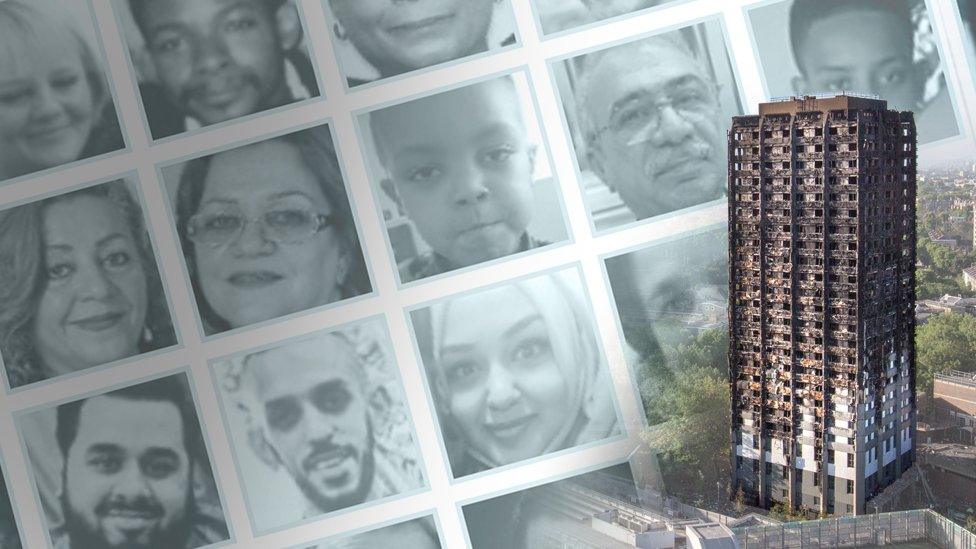Grenfell Tower: Fire brigade interviewed by police
- Published
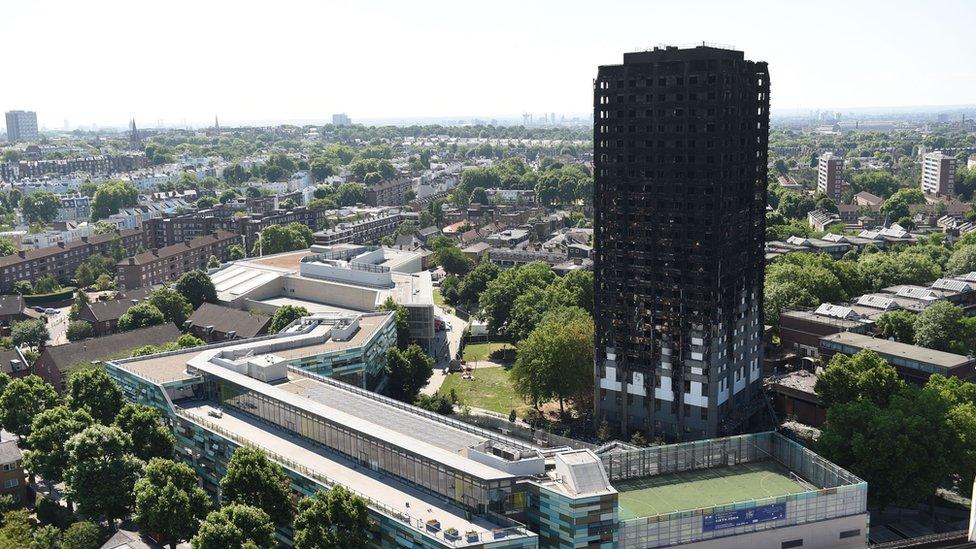
The London Fire Brigade has been interviewed under caution by police investigating the Grenfell Tower fire.
The fire service said it voluntarily gave an interview "as a body, rather than an individual" in relation to the Health and Safety at Work Act 1974.
London Fire Commissioner Dany Cotton said she recognised that survivors and the bereaved needed answers.
The Metropolitan Police is probing the fire in west London in June 2017 in which 72 people died.
Ms Cotton said hundreds of LFB staff had already provided voluntary police interviews and the service would continue to assist investigators.
"We must all understand what happened and why to prevent communities and emergency services from ever being placed in such impossible conditions ever again," she added.
Grenfell United, the group representing survivors and bereaved families, said it was "only right" that the fire brigade was facing questions.
It said: "We have been very patient but in the months ahead we need to see organisations and individuals being brought to account, lessons being learnt and changes being made."
The Met has previously said that the fire brigade's use of the so-called stay put policy, advising residents to remain in their flats, was a line of inquiry.
The police interview focused on sections 2 and 3 of the Health and Safety at Work Act.
The law is designed to ensure that employees and non-employees are not exposed to unreasonable risks.
In a statement,, external the LFB said it was making the interview public "in accordance with its commitments to transparency".
The second phase of the public inquiry into the fire, external is not due to start until early next year and police have said no decision on charges will be made until it is complete, which could be in 2022.
So far detectives working for the wider Grenfell Tower inquiry have carried out 17 interviews into potential manslaughter, corporate manslaughter and health and safety offences.
In June the force said about 7,100 statements had been taken from witnesses, community and family members, emergency services personnel and others.
- Published14 June 2019
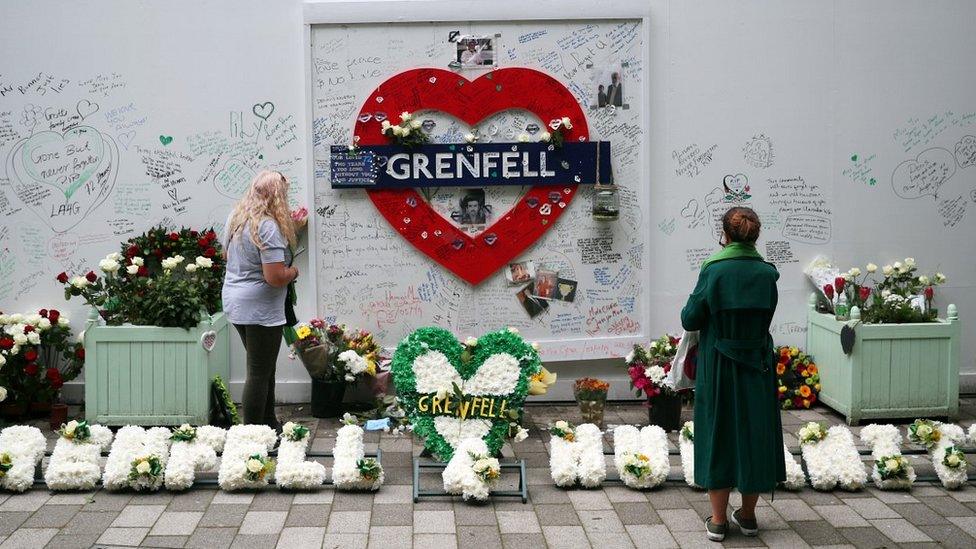
- Published10 June 2019
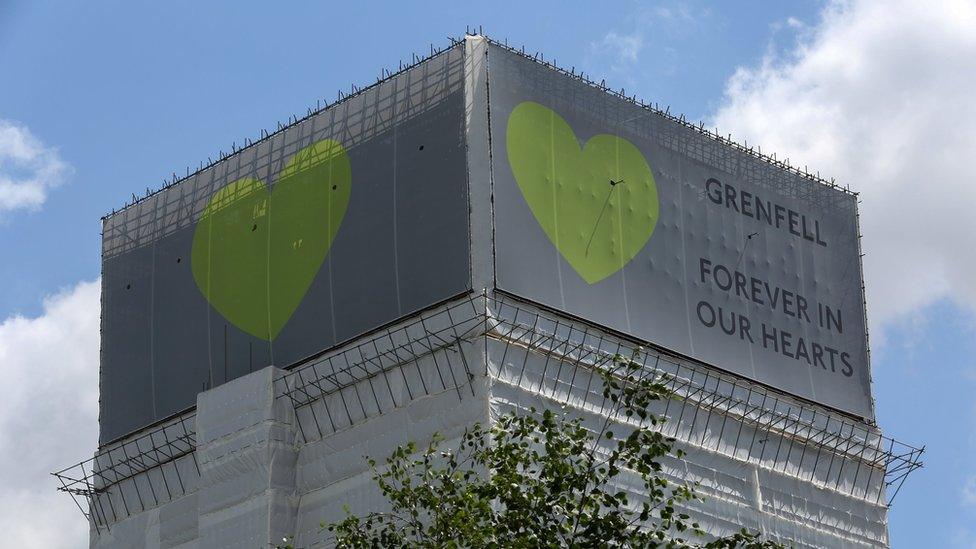
- Published17 May 2019
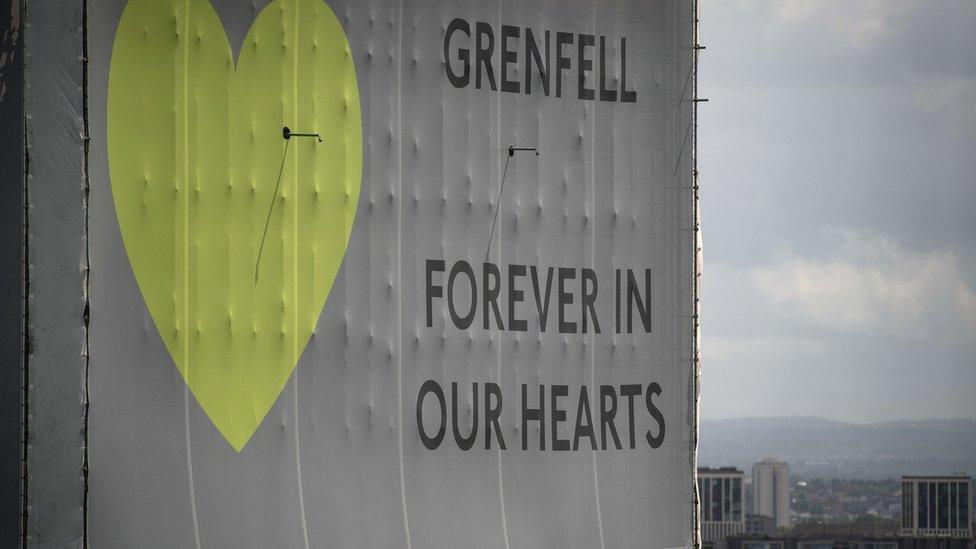
- Published30 May 2018
